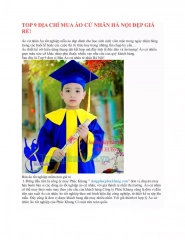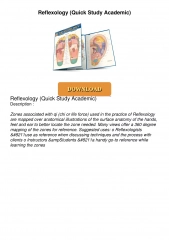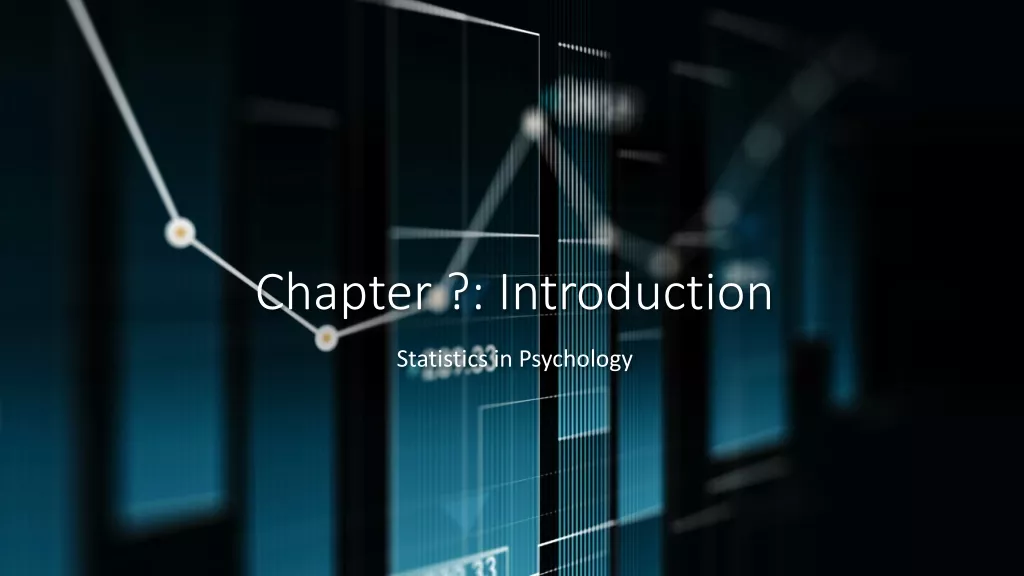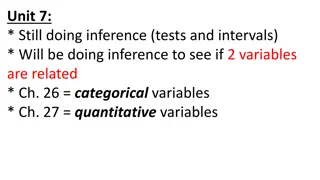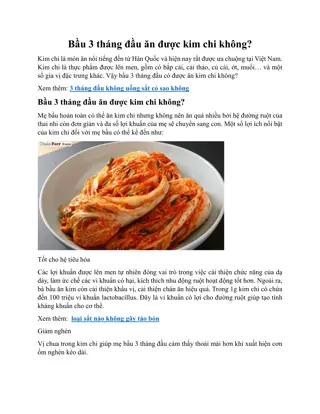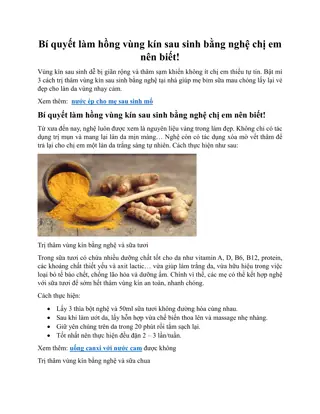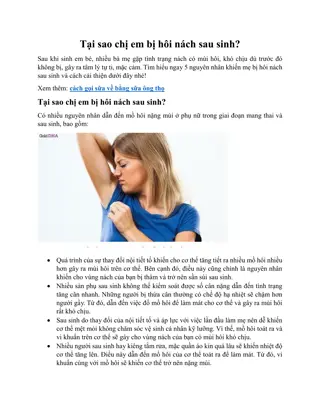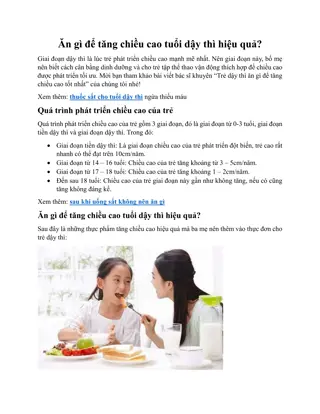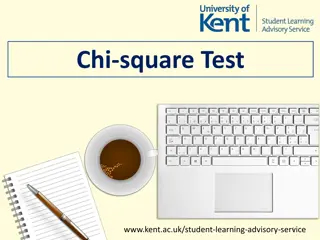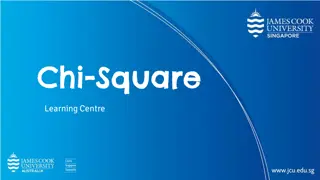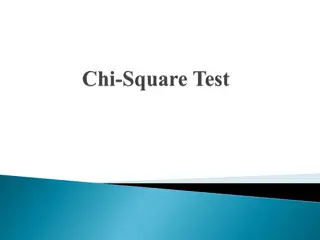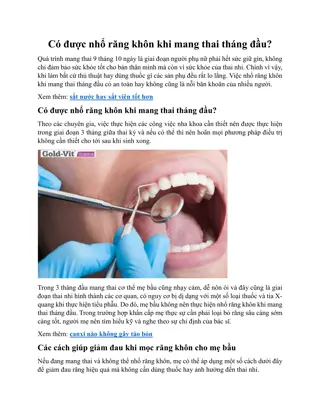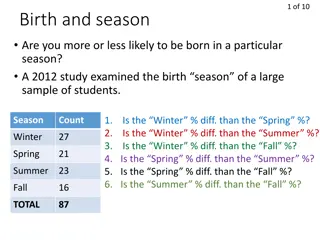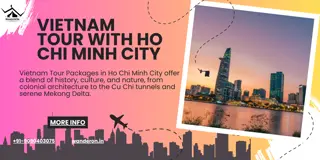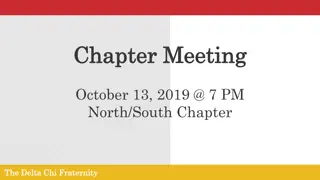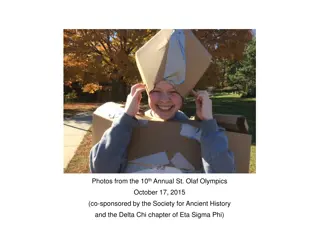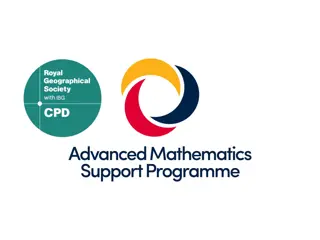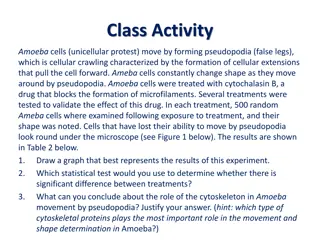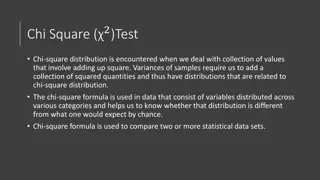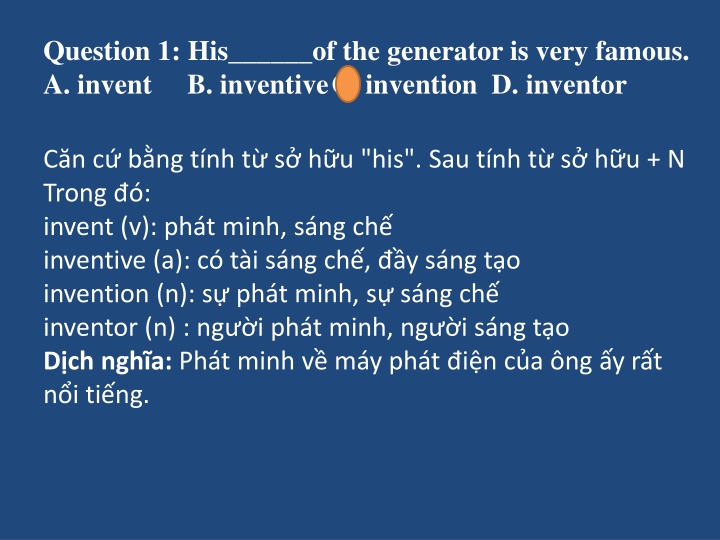
Practice English Grammar with Interactive Quizzes
Enhance your English grammar skills with interactive quizzes on various topics such as vocabulary, sentence structure, and word usage. Test your knowledge and improve your understanding of key grammar concepts. Get instant feedback and learn while having fun.
Download Presentation

Please find below an Image/Link to download the presentation.
The content on the website is provided AS IS for your information and personal use only. It may not be sold, licensed, or shared on other websites without obtaining consent from the author. If you encounter any issues during the download, it is possible that the publisher has removed the file from their server.
You are allowed to download the files provided on this website for personal or commercial use, subject to the condition that they are used lawfully. All files are the property of their respective owners.
The content on the website is provided AS IS for your information and personal use only. It may not be sold, licensed, or shared on other websites without obtaining consent from the author.
E N D
Presentation Transcript
Question 1: His______of the generator is very famous. A. invent B. inventiveC. invention D. inventor C nc b ng t nh t s h u "his". Sau t nh t s h u + N Trong : invent (v): ph t minh, s ng ch inventive (a): c t i s ng ch , y s ng t o invention (n): s ph t minh, s s ng ch inventor (n) : ng i ph t minh, ng i s ng t o D chngh a: Ph t minh v m y ph t i nc a ng yr t n iti ng.
Question 2: They rarely let her stay out late, _______? A. do they B. don t they C. does she D. doesn t she - c u h i u i C u h i u i lu n h i cho ngt v ch ng m nh ch nh. Trong tr ngh p n y, ch ng c am nh ch nh l they n n hai p n C v D (h i cho She) b lo i. C u kh ng nh c c u h i u id ngph nh c n c u ph nh c c u h i u id ngkh ng nh. C u b i cho c rarely l tr ngt ph nh n n n l c u ph nh. V v y, ch n p n A - do they (c ph nh i u i kh ng nh). T md ch: H kh ng cho c y ra ngo i qu mu n u, c ng kh ng?
Question 3: The commission estimates that at least seven companies took___________ of the program. A. advantage B. use C. benefit D. dominance c u h i th nh ng Th nh ng take advantage of sb/sth : t nd ng/ l id ng ai ho c c i g . X t 4 p n, ch ch n c A - advantage. A. advantage (n): l ith B. use (n)/ (v): c ng d ng (n) - th ng i trong Make use of sth - t nd ng c i g / s d ng (v) C. benefit (n): l i ch D. dominance (n): s th ngtr T md ch: y ban n y c t nh r ng c t nh t 7 c ng ty l i d ngch ng tr nh n y
Question 4. Both husband and wife should be responsible ________ doing the household chores. A. with B. to C. for D. of Ki nth c: Gi it Gi i th ch: be responsible for st/doing st: c , ch u tr ch nhi mv c i g /l m g T md ch: C hai v ch ng u n n c tr ch nhi m l m vi c nh .
Question 5: Mary was clearly nervous; she was sitting right on the______ of his chair. A. outside B. edge C. tip D. border Outside: b n ngo i Edge: m p Tip: u Border: bi n gi i C u n y d chnh sau: Mary r r ng ang lo l ng; c y y angng i ngay m p gh .
Question 6: I will stand here and wait for you you come back. A. because B. though C. so D. until A. Because: b i v B. Though: m c d D chngh a: Anh s v n ng ych em cho n khi em quay l i. C. So: v th D. Until: m i n khi
Question 7. She bought a _________ lunchbox that she could carry lunch to work. A. new red plastic B. red plastic new C. new plastic red D. plastic new red Ki n th c: Tr t t t nh t Gi i th ch: Khi c nhi u t nh t c ng ng tr c 1 danh t , s p x p ch ng theo th t : OSASCOMP + N. Trong : O opinion: quan i m S size: k ch th c A age: tu i S shape: h nh d ng C colour: m u s c O origin: ngu n g c M material: ch t li u P purpose: m c ch N noun: danh t N u c s th t => ng tr c t nh t & danh t T m d ch: C y mua m t h p c m b ng nh a m u m i c th mang i n tr a i l m.
Question 8: The government hopes to______its plans for introducing cable TV. A. turn out B. carry out C. carry on D. keep on + turn out: ho ra + carry on = keep on = go on = continue: ti pt c + carry out: ti n h nh D chngh a: Ch nh ph hi v ngth chi n ck ho ch p d ng c p quang ti vi.
Question 9: When she came home from school yesterday, her mother _______in the kitchen. A. cooked B. was cooking C. is cooking D. cooks Ki nth c: Th trong ti ng Anh. Gi i th ch: Ta d ng th qu kh n v th qu kh ti pdi n di nt m t h nh ng angx y ra trong qu kh th c m t h nh ng kh c xen v o. T md ch: H m qua khi c y ih cv , m c ang n u n trong b p.
Question 10: ______, he went straight home. A. While he would finish his work B. When he has finished his work C. After he had finished his work D. Before he has been finishing his work Ki nth c: Th qu kh ho n th nh. Gi i th ch: C u tr c: After S + had +Ved/ Vp2, S + Ved/ V2 T md ch: Sau khi anh y ho n th nh xong c ng vi c, anh y ith ngv nh .
Question 11: The jury______her compliments on her excellent knowledge of the subject A. paid B. gave C. made D. said C u n y d chnh sau: B ith m o n khen ng i c y ki nth ctuy tv iv ch n y. Pay compliment / k mpl m nt/ (n) on sth = compliment/ k mpl ment/ (v) on sth: khen ng i ai v vi c g
Question 12: I took the children to the _______park last weekend. They really enjoyed going on all the rides. A. wildlife B. amusement C. national D. entertainment Ki nth c: t v ng Wildlife (n): ngv t hoang d Amusement(n): s gi i tr National (a): thu cv qu c gia Entertainment(n): s gi i tr C m danh t : amusemnet park [ khu vui ch igi i tr ] C u n y d chnh sau: T i d nl tr n khu vui ch icu itu n tr c. Ch ng th ts th ch c chuy n i.
Question 13. This villa - in 1975 by my grandfather. A. built B. was built C. was build D. has built Ki n th c: C u b ng: Gi i chi ti t: C u b ng th Qu kh n. H nh ng c nh n m nh l ng i nh c x y d ng, tr ng ng ch th i gian l in 1970. S + ngt tobe + V-ed/V3 T md ch : C nbi tth c x y v o n m 1975 b i ng t i.
Question 14. ________ this movie last week, I dont want to see it again. A. Having seen B. Being seen C. Having been seen D. Seeing Ki nth c: M nh ph n t / R t g nm nh ngng Gi i th ch: Khi 2 m nh c c ng ch ng (I) th c th r t g n 1 trong 2 m nh v d ng: - V-ing / Having P2: n um nh c r t g n mang ngh ach ng - P2 (qu kh ph n t ): n um nh c r t g n mang ngh ab ng Ch ng I c th l m ch (t th chi n h nh ng see => ngh a ch ng. h nh ng x y ra trong qu kh . Having+V3/ed T md ch: xem phim n y tu ntr c, t i kh ng mu n xem l i.
Question 15: The richer you are, _______. A. you may become more worried B. you more worried may become C. the more worried you may become D. the more worry you may become become X t c c p n: A. you may become more worried => Sai c u tr c so s nh k p B. you more worried may become => Sai c u tr c so s nh k p C. the more worried you may become C u tr c so s nh k p khi n i v 2 ng iho cs v t: The + so s nh h n + S + V, the + so s nh h n + S + V D. the more worry you may become sau more l adj/adv, kh ng ph i ngt
Question 16: How fashionable a pair of trainers you have! - ______________ A. Do you want to know where I bought them? B. Thanks for your compliment. C. I know it s fashionable. D. Yes, of course. T nh hu ng: B n c i gi y th thao th tth i trang! A. B n c mu nbi t t i mua ch ng u kh ng? B. C m n v l i khen. C. T i bi t n h pth i trang. D. ngr i, t t nhi n l v y. => Khi c khen, ch ng ta n i c m n
Question 17: What can I do for you? - _______. A. No need to help. C. Thanks, I m just looking. anything B. Thank you. D. Sorry for not buying T i c th gi p g cho b n? - __________ A. Kh ng c n gi p. B. C m n. C. C m n, t i ch ang xem th i. D. Xin l i v kh ng mua th g . => Khi ch i c c n gi p g kh ng => ch ng ta n i c m n
Question 18: A. admit B. suggest C. remind D. manage Ki nth c: Tr ng m t c 2 m ti t Gi i th ch: A. admit / d m t/ C. remind /r ma nd/ B. suggest /s d est/ D. manage / m n d /
Question 19: A. approval B. applicant C. energy D. influence Ki nth c: Tr ng m t c 3 m ti t Gi i th ch: A. approval / pru vl/ C. energy / en d i/ B. applicant / pl k nt/ D. influence / nflu ns/
Question 20: A. watched B. cleaned C. stopped D. picked Ki nth c: Ph t m ed Gi i th ch: C ch ph t m u i ed : + u i ed c ph t m l /id/ khi ngt c ph t m k t th c l /t/ hay /d/ + u i ed c ph t m l /t/ khi ngt c ph t m k t th c l /s/,/f/,/p/,/ /,/t /,/k/ + u i ed c ph t m l /d/ v i c c tr ngh p c n l i A. watched /w t t/ C. stopped /st pt/ D. picked /p kt/ B. cleaned /kli nd/
Question 21: A. hole B. home C. come D. hold Ki nth c: Ph t m o Gi i th ch: A. hole /h l/ C. come /k m/ B. home /h m/ D. hold /h ld/
Question 22: I will not stand for your bad attitude any longer. A. like B. sit C. tolerate D. care Ki nth c: T ngngh a Gi i th ch: stand for: ch u ng A. like (v): th ch C. tolerate (v): ch u ng => stand for = tolerate T md ch: T i s kh ng ch u ng th i x uc ab nn a. B. sit (v): ng i D. care (v): quan t m
Question 23. The repeated commercials on TV distract many viewers from watching their favorite films .A. advertisements B. contests C. business D. economics T md ch: Nh ngqu ng c o l p il pl i tr n ti vi s l m cho ng i ta b xao nh ng kh ivi c xem c c b phim y u th ch c ah . commercials = advertisements: nh ngm uqu ng c o
Question 24: In some countries, so few students are accepted by the universities that admission is almost a guarantee of a good job upon graduation. A. a promise B. an uncertainty C. an assurance D. a pledge T tr i ngh a - ki nth cv th nh ng T md ch: m ts qu c gia, r t t sinh vi n c c c tr ng ih c ch pnh n m vi cnh ph cg nnh l m ts mb o cho m t c ng vi ct t khi t tnghi p. => guarantee / r n ti / (n):l i cam k t, mb o X t c c p n: A. promise (n): l ih a B. uncertainty / r ns/ (n): t nh kh ng ch cch n C. assurance / n s rtnti/ (n): l i cam k t, h ah n D. pledge /pled / (n): l i cam k t, l inguy n => Do : a guarantee >< an uncertainty
Question 25: The burglar crept into the house without making any noise. That's why no one heard anything. A. inaudibly B. boisterously C. shrilly D. hurly-burly T tr i ngh a - ki nth cv th nh ng T md ch: T n tr ml n v o nh m kh ng h t o ra ch t ti ng n n o. l l do kh ng ai nghe th y g . => without making any noise: kh ng h t o ra ch t ti ng n n o X t c c p n: A. inaudibly / n d bli/ (adv): m t c ch v thanh B. boisterously / b st r sli/ (adv): m t c ch m , n o nhi t (tr n yn ngl ng) C. shrilly / r lli/ (adv): m t c ch the th , inh tai (g y kh ch u) D. hurly-burly / h rlib rli/ (adv): m tho t ng, t nh hu ng n o, n o nhi t => Do : without making any noise >< boisterously
Question 26: Seth informed us of his retirement from the company. He did it when arriving at the meeting. A. Only after his retiring from the company did Seth tell us about his arrival at the meeting. B. Not until Seth said to us that he would leave the company did he turn up at the meeting. C. Hardly had Seth notified us of his retiring from the company when he arrived at the meeting D. No sooner had Seth arrived at the meeting than we were told about his leaving the company Ki nth c: o ng Gi i th ch: No sooner + had + S + PP than + S + Ved/ V2: Ngay khi... th ...
Question 27: They were late for the meeting. The heavy was heavy. A. If it snowed heavily, they would be late for the meeting. B. Had it not snowed heavily, they would have been late for the meeting. C. But for the heavy snow, they wouldn't have been late for the meeting. D. If it didn't snow heavily, they wouldn't be late for the meeting. T md ch: H nmu nbu ig pm t. Tuy tr inhi u. They were late for the meeting. The snow was heavy. (nguy n nh n v k t qu ) ( Qu kh n) T nh hu ng qu kh n n vi tl ib ng c u i uki nlo i 3. A. Sai v l c u i uki nlo i 2 B. Sai v l c u i uki nlo i 3 nh ng kh ng ph h pv ngh av i c u cho (N u kh ng c tuy tr inhi u, h nmu nbu ig pm t) C. ng v ph h p l c u i uki nlo i 3 (r t g n) v ph h pv ngh a. D. Sai v l c u i uki nlo i 2
Question 28: Mrs. Hoa and her friends from Vietnam plan to attend the festival now * Chia th theo ngtr ngng ch th i gian: now Mrs. Hoa and her friends from Vietnam (plan) to attend the festival now. Ta ph i chia ngt plan th nh th hi nt iti pdi n
Question 29: Some manufacturers are not only raising their prices but also decreasing the production of its products. Ki m tra ki nth c: S ho h pgi ach ng v t nh t s h u c ch Some manufacturers s nhi u their D ch: M t s nh s n xu t kh ng nh ng t ng gi th nh m c n gi m n ng su t c a c c s n ph m.
Question 30: The whole matter is farther complicated by the fact that Amanda and Jo refuse to speak to each other. C farther v further u l d ng so s nh h n c a t far . Tuy nhi n, ch ng c s kh c nhau nh sau: + Farther: xa h n (v kho ng c ch a l ) + Further: xa h n, s u h n (v m c , t nh ch t) T m d ch: To n b v n ph c t p h n b i th c t l Amanda v Jo t ch i n i chuy n v i nhau. => p n l B (farther -further) C u tr c kh c: Refuse to do st: t ch i l m g
Question 31: A supermarket is more convenient than a shopping centre. A. A shopping centre is not as convenient as a supermarket. B. A shopping centre is more convenient than a supermarket. C. A supermarket is not as convenient as a shopping centre. D. A supermarket is as inconvenient as a shopping centre. Ki nth c: di n t c u v iC u so s nh Gi i th ch: M t si u th thu nti nh nm t trung t m mua s m. A. M t trung t m mua s m kh ng thu nti nnh si u th . B. M t trung t m mua s mthu nti nh n si u th . C. M t si u th kh ng thu nti nnh m t trung t m mua s m. D. M t si u th b tti nnh m t trung t m mua s m.
Question 32: "It was your fault. You broke my windows, "said the woman to him. A. The woman insisted him on breaking her windows. B. The woman advised him to break her windows. C. The woman told him to break her windows. D. The woman blamed him for having broken her windows. T md ch: l l ic a ch u. Ch u l m v c a k nh nh b c , Ng iph n n i v ic u b . A. Ng iph n kh ngkh ngb tc u b l m v c a k nh nh b ta. B. Ng iph n khuy n c u b l m v c a k nh nh b ta. C. Ng iph n b oc u b l m v c a k nh nh b ta. D. Ng iph n l i cho c u b v l m v c a k nh nh b ta.
Question 33. It was a mistake for Tony to buy that house. A. Tony couldn t have bought that house. B. Tony can t have bought that house. C. Tony needn t have bought that house. D. Tony shouldn t have bought that house. Ki nth c: ngt khuy tthi u Gi i th ch: couldn t have P2: kh ng th l m g trong qu kh can t have P2: kh ng th n o needn t have P2: ngl ra kh ng c n shouldn t have P2: kh ng n n l m g T md ch: l l ic a Tony khi mua c n nh . D. Tony n n kh ng mua c n nh .
Question 34: His sister learned the household skills that would prepare her to become ..........wife and mother. A. many B. the C. an D. a Gi i th ch: v his sister l s t n n lo ib A; C mt become tr th nh .kh ng x c nh, s t n n d ng m o t a (Ch g i c u y h c c c k n ngn itr s chu nb cho t ng lai c ytr th nh ng iv v ng im .)
Question 35: Nowadays young people grow up in a much freer society ........ they enjoy almost unlimited career opportunities A. where B. when C. why D. whom where: tr ngt quan h , thay th cho t / c mt n ich n when: tr ngt quan h , thay th cho t / c mt ch th i gian why: tr ngt quan h , thay th cho t / c mt ch l do whom: it quan h , thay th cho t n ng ch ng i Trong c u n y t c n i n v o l it quan h thay th cho c mt n ich n in a society . (Ng y nay, nh ngng itr l n l n trong m t x h it do h n nhi u, n i m h c ch unh v s c h ingh nghi p.)
Question 36: In recent years, there ............an enormous increase in the kinds of vocations from which it is possible to choose A. had been B. has been C. will be D. was In recent years: trong nh ngn mg n y => ngt chia th hi nt i ho n th nh (Trong nh ngn mg n y, c s t ngm nhv c c lo ingh nghi p cho m ing il ach n.)
Question 37: In addition, many of the barriers to career opportunity that existed only a few decades ago, such as ............. based on sex or religion or ethnic origins... religion or ethnic origins... A. judgement B. perception C. devotion D. discrimination judgment (n): s nh gi , c ph n o n perception (n): s ti pnh n, s nh nth c devotion (n): s t nt y, s hi n d ng discrimination (n): s ph n bi t ix (Th m v o , nhi u r o c n iv ic h ingh nghi p t nt im t v i th pk tr c ynh s ph n bi t ix d a tr n gi i t nh ho c t n gi o ho cngu ng c d n t c...)
Question 38: In addition, many of the barriers to career opportunity that existed only a few decades ago, such as discrimination based on sex or religion or ethnic origins, are ............. disappearing. A. rapidly B. incessantly C. categorically D. vigilantly rapidly (adv): nhanh ch ng incessantly (adv): kh ng ng ng, kh ng d t categorically (adv): r r ng, minh b ch vigilantly (adv): th ntr ng, c nh gi c (Th m v o , nhi u r o c n iv ic h ingh nghi p t nt ich m t v i th pk tr c ynh s ph n bi t ix d a tr n gi i t nh ho c t n gi oho cngu ng c d n t c ang nhanh ch ng bi nm t.)
Question 39. What is the main focus of this passage? A. Jobs on Wall Street B. Types of graduate degrees C. Changes in enrollment for MBA schools D. How schools are changing to reflect the economy Tr ng t m ch nh c a b i c n y l g ? C c c ng vi c tr n ph Wall C c lo ib ngt tnghi p Nh ng thay i trong vi ctuy n sinh c a c c tr ng MBA C ch th c c c tr ng ang thay i ph n nh n n kinh t D nch ng: o n 1: After twenty years of growing student enrollments and economic prosperity, business schools in the United States have started to face harder times... (Sau 20 n m gia t ngs sinh vi n ng k h c v s ph t tri nth nh v ngc an n kinh t th c c tr ng kinh doanh M b t uph i im t v inh ng kh kh n...) o n 2: There are two factors causing this decrease in students seeking an MBA degree. (C 2 y ut d n n t nh tr nggi ms l ng sinh vi n theo u ib ng MBA.)
Question 40. The word prosperity in the first paragraph could be best replaced by which of the following? A. success B. surplus C. nurturing D. education success (n): s th nh c ng surplus (n): s d nurture (n): s nu i d ng education (n): gi o d c After twenty years of growing student enrollments and economic prosperity, business schools in the United States have started to face harder times... (Sau 20 n m gia t ng s sinh vi n ng k h c v s ph t tri nth nhv ngc a n n kinh t th c c tr ng kinh doanh M b t u ph i im tv inh ng kh kh n...) Do : prosperity: ~ success: s th nhv ng, s th nh c ng
Question 41. Which of the following business schools has shown an increase in enrollment? A. Princeton B. Harvard C. Stanford D. Yale Tr ng kinh doanh n o sau y cho th ys gia t ng trong vi c tuy n sinh? Princeton Harvard Stanford Yale D nch ng: Only Harvard s MBA School has shown a substantial increase in enrollment in recent years. Both Princeton and Stanford have seen decreases in their enrollments. (Ch c tr ng kinh doanh MBA Harvard cho th yvi ctuy n sinh t ng ngk trong nh ngn mg n y. C Princeton v Standford u cho th y vi ctuy n sinh gi mxu ng.)
Question 42. Which of the following descriptions most likely applies to Wall Street? A. a center for international affairs B. a major financial center C. a shopping district D. a neighborhood in New York Mi u t n o sau y c th th ch h pnh tv iPh Wall? M t trung t m ngo i giao M t trung t m t i ch nh l n M t khu v c mua s m M t v ng l n c n New York D nch ng: The first one is that many graduates of four-year colleges are finding that an MBA degree does not guarantee a plush job on Wall Street, or in other financial districts of major American cities... (Y ut u ti n l nhi u sinh vi n t tnghi p ih c 4 n m nh nth yr ngb ng MBA kh ng mb o c ng vi ct t ph Wall ho c c c khu v c t i ch nh kh c c c th nh ph l nc an cM .)
Question 43: As used in the second paragraph, the word struggling is closest in meaning to_____. A. evolving B. plunging C. starting D. striving evolving: ti n h a plunging: lao xu ng, y v o starting: b t u striving: c g ng, u tranh Business needs are changing, and MBA schools are struggling to meet the new demands. (Nhu c u kinh doanh ang thay i v c c tr ng MBA angc g ng h ts c p ng c c y u c um i.) Do : struggling ~ striving: c g ngph n u
Question 44. What does the passage mainly discuss? A. The problems faced by leaders B. How leadership differs in small and large groups C. How social groups determine who will lead them D. The role of leaders in social groups B i cch y uth olu nv i u g ? nh ngv n m c c nh l nh oph i im t kh n ng l nh o trong c c nh m l n v nh kh c nhau nh th n o c c nh m x h i x c nhng i l nh onh th n o vai tr c a c c nh l nh o trong c c nh m x h i D nch ng: - ... there are typically two different leadership roles that are held by different individuals... (.. .th ng c 2 vai tr l nh o kh c nhau c c c c nh n kh c nhau n m gi ...) Instrumental leadership is leadership that emphasizes the completion of tasks by a social group. (C ng vi c l nh o l i u h nh nh nm nhvi c ho n th nh nhi mv c am t nh m x h i) Expressive leader are less concerned with the overall goals of the group than with providing emotional support to group members and attempting to minimize tension and conflict among them. (L nh oc m x c l cung c ph tr t nh c m cho c c th nh vi n nh m v c g nggi m thi uc ngth ng v xung t trong nh m m t quan t m nm c ti u t ngth c a nh m.)
Question 45. The passage mentions all of the following ways by which people can become leaders EXCEPT_______. A. recruitment B. formal election process C. specific leadership training D. traditional cultural patterns B i c c pt tc nh ng c ch sau y m tng i c th tr th nh nh l nh o NGO I TR . tuy nd ng quy tr nh b uc ch nh th c ot okh n ng l nh o m h nh v n h a truy nth ng D nch ng: According to sociologists, there are several different ways in which a person may become recognized as the leader of a social group in the United States. In the family, traditional cultural patterns confer leadership on one or both of the parents. In other cases, such as friendship groups one or more persons may gradually emerge as leaders, although there is no formal process of selection. In larger groups, leaders are usually chosen formally through election or recruitment, ( o n 1) (Theo c c nh x h ih c, c nhi u c ch kh c nhau trong m tng i c th c c ng nh n l ng i l nh oc a m t nh m x h i Hoa K . Trong gia nh, c c m uv n h a truy nth ng trao quy n l nh o cho m tho cc hai cha m . Trong c c tr ngh p kh c, ch ngh nnh c c nh m h ungh , m tho cnhi ung i c th d nd nn i l n nh c c nh l nh o, m c d kh ng c qu tr nh l ach n ch nh th c. Trong c c nh m l nh n, c c nh l nh o th ng cch n ch nh th c th ng qua b uc ho ctuy nd ng.
Question 46. In mentioning natural leaders in the second paragraph, the author is making the point that___ A. few people qualify as natural leaders B. there is no proof that natural leaders exist C. natural leaders are easily accepted by the members of a social group D. natural leaders share a similar set of characteristics Khi c p n c c nh l nh o thi n b m" trong o n 2 th c a t c gi l r t t ng i c kh n ng l nh l nh o thi n b m kh ng c b ngch ngv vi c nh l nh o thi n b m" t nt i nh l nh o thi n b m d d ng cch pnh nb i c c th nh vi n trong m t nh m x h i nh l nh o thi n b m c chung nhi u c i m D nch ng: Although leaders are often thought to be people with unusual personal ability, decades of research have failed to produce consistent evidence that there is any category .of natural leaders. (M c d c c nh l nh oth ng c cho l nh ngng i c kh n ng cbi tnh ng c c nghi n c u trong nhi uth pk qua kh ng t m ra b ngch ng ph h p cho vi c c c c nh l nh o thi n b m hay kh ng.) .
Question 47. The passage indicates that instrumental leaders generally focus on . A. ensuring harmonious relationships B. sharing responsibility with group members C. identifying new leaders D. achieving a goal B i cch ra r ng instrumental leaders th ngt p trung v o . mb o c c m i quan h c h i h a chia s tr ch nhi mv i c c th nh vi n trong nh m nh n ra c c nh l nh om i t cm c ti u D nch ng: Instrumental leadership is leadership that emphasizes the completion of tasks by a social group. Group members look to instrumental leaders to get things done. (L nh o c ng c l l nh onh nm nhvi c ho n th nh nhi mv c am t nh m x h i. C c th nh vi n trong nh m t m n c c nh l nh o c ng c "khi nm ivi c cth chi n")
Question 48. The word collective in the third paragraph is closest in meaning to . A. necessary B. typical C. group D. particular T collective trong o n 3 g nngh anh tv i c nthi t B. i n h nh C. nh m D. cbi t, ri ng bi t .
Question 49. The word them in the third paragraph refers to A. expressive leaders C. group members . B. goals of the group D. tension and conflict T them trong o n 3 c p n . c c nh l nh o gi u c m x c c c m c ti u c a nh m c c th nh vi n trong nh m c ngth ng v xung t Expressive leaders are less concerned with the overall goals of the group than with providing emotional support to group members and attempting to minimize tension and conflict among them. (Nh ng nh l nh o gi u c m x c t quan t m nm c ti u chung c a nh m h n so v ivi c gi p c c th nh vi n trong nh m v c m x c v n l cgi mt ithi uc ngth ng v xung tgi a c c th nh vi n trong nh m.) Do : them = group members
Question 50. A secondary relationship mentioned in the last paragraph between a leader and the members of a group could best be characterized as A. distant B. Enthusiastic . C. unreliable D. personal M t m i quan h ph c c p trong o ncu igi a nh l nh o v c c th nh vi n trong nh m c th c mi u t l . xa c ch, c kho ng c ch nhi t t nh kh ng ng tin c nh n D nch ng: Instrumental leaders are likely to have a rather secondary relationship to other group members. They give orders and may discipline group members who inhibit attainment of the group s goals. Expressive leaders cultivate a more personal or primary relationship to others in the group ( C c nh ctr ng c kh n ngk tn iv i c c th nh vi n kh c trong nh m. H a ra m nhl nh v tr tt i c c th nh vi n trong nh m, h l nh ngng iki m so t vi c t c c c m c ti u c a nh m. C c nh c tr ngbi u t trau d im tm i quan h c nh n ho cv inh ngng i kh c trong nh m )

